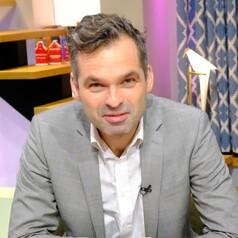
Martijn Jeroen van der Linden
Professor of Practice in New Finance, Hague University of Applied Sciences
Van der Linden is a Professor of Practice in New Finance at The Hague University of Applied Sciences and obtained his Ph.D. from Delft University of Technology in 2022. In his research, he developed design guidelines for the monetary and financial system in the digital age.
Currently, his research focuses on central bank digital currencies (CBDCs), stablecoins, deposit banks, cryptocurrencies, financial instability, and the liberalization and re-regulation of banking.
Less ![]()

Martin Zimmer
Professor of mangrove ecology, Leibniz Centre for Tropical Marine Research (ZMT)
Less ![]()
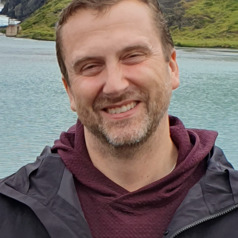
Martin Andresen
Professor of Criminology, Simon Fraser University
Martin A. Andresen is a professor in the School of Criminology at Simon Fraser University. He is also an Affiliated Scholar in the Center for Evidence-Based Crime Policy at George Mason University, a Member of the Crime and Place Working Group in the Center for Evidence-Based Crime Policy at George Mason University, a Member of the Space, Place, and Crime Working Group in the European Society of Criminology, and an editorial board member for: Journal of Criminal Justice; International Criminal Justice Review; Canadian Journal of Criminology and Criminal Justice; Criminology, Criminal Justice, Law & Society; and Methodological Innovations.
Martin A. Andresen's research areas are in spatial crime analysis, crime and place, geography of crime, and applied spatial statistics and geographical information analysis. Within these research areas, he has published 5 books, 3 edited volumes, and more than 150 refereed journal articles and contributions to edited volumes.
Less ![]()
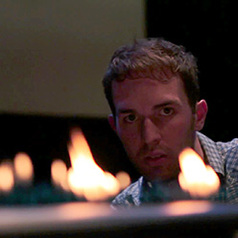
Martin Archer
Space Plasma Physicist, Queen Mary University of London
Dr Martin Archer is a Space Physicist at Queen Mary University of London (and Imperial College London). Martin became a published scientist whilst still an undergraduate, working on the Cluster space mission. It is this work which has inspired his PhD research on structures and waves in the Earth’s magnetosphere.
In addition to his research, Martin is determined to come up with fresh perspectives on how to communicate his love of science, especially to young audiences, and has worked on a number of exciting and unique projects including his DJ Physics shows, the Droppin’ Science Podcast, WiiJing and appearances at numerous science festivals and schools.
You’ll regularly see Martin on television both in the UK and internationally discussing the latest physics news, explaining scientific concepts and championing the importance of engaging the public with science. In addition to this Martin has featured on the BBC Radio 4 Today programme, the Guardian Science Weekly podcast and has written numerous science pieces and been profiled by a number of publications including The Guardian, The Times and MSN.
Less ![]()
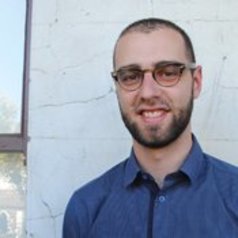
Martin Bortz
I am a current PhD student at the University of Melbourne. I am studying the role of knowledge in public policy, and the way in which that shapes power dynamics between different political actors.
Less ![]()
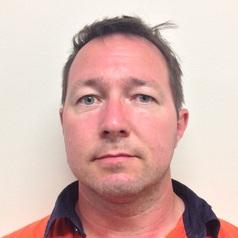
Martin Brook
Associate Professor of Applied Geology, University of Auckland
Chartered Geologist (CGeol) and director of the master of engineering geology degree at the University of Auckland. PhD from the University of Dundee and MEng from University of New South Wales. Prior to joining the University of Auckland, I worked for a large multi-national consultancy in Brisbane, and worked on engineering geological issues across Australia-Pacific and the Middle East. Part of the landslide emergency response team for the Gisborne state of emergency in November 2021. Published >80 journal articles including many on landslide investigations and satellite monitoring, particularly on urban landslides in the North Island, including Auckland and Gisborne. Have received funding from EQC, Royal Society and MBIE for environmental geology research, supervised >50 research students to completion.
Less ![]()
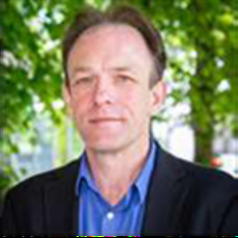
Martin Brown
Head of School of Policy and Practice, Co-Director: EQI The Centre for Evaluation Quality and Inspection, DCU Institute of Education, Ireland, Dublin City University
Martin Brown is Head of School of Policy and Practice at the Institute of Education, Dublin City University (DCU) and co-director at EQI – The Centre for Evaluation Quality and Inspection, also based at DCU. He is an Expert Evaluator to the European Commission, advisor to the Teaching Council of Ireland and an adjunct faculty member of the Centre for Culturally Responsive Evaluation and Assessment at the University of Illinois. He has planned and led evaluations in Ireland, Northern Ireland, Europe and the Middle East; working for, among others, the European Commission, Dept. of Education and Skills (Ireland), the State Education Development Agency (Latvia) and the United Arab Emirates government.
He has received two all Island SCOTENS Awards (2018/2020) for outstanding research in Teacher Education and has received the President of DCU Gold medals for Research Impact and Teaching and Learning (2020). In 2021 he also received the President of DCU Gold medal for Civic Engagement.
Less ![]()
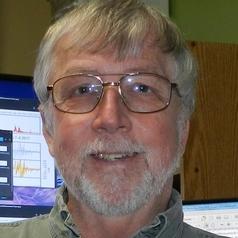
Martin Connors
Professor of Space Science and Physics, Athabasca University
Martin Connors is Professor of Space Science and Physics at Athabasca University, also affiliated with Western University (Ontario). He runs the Athabasca University Observatories, using the dark night skies of northern Alberta to study the aurora and other sky phenomena, and also geo-electromagnetic networks. The latter monitor space weather through magnetic and electric fields using novel instrumentation, some developed in-house. Connors has also developed innovative techniques in distance education. He received both his M.Sc. and Ph.D. from the University of Alberta, in theoretical and space physics. For fun he studies languages and reads about history. His book "Invisible Solar System" will be published in 2024.
Less ![]()
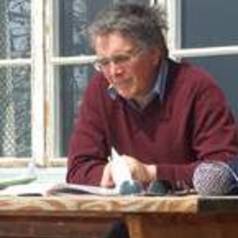
Martin Conway
My research and publications have been driven by a number of overlapping interests in European history from roughly the 1930s to the 1960s.
One central element of that interest has been the history of Belgium, which has been much overlooked in the historiography of the twentieth century, but which provides a fascinating example of the interplay of factors of class, of ideology and of linguistic identity. I have published two books on Belgium, most recently (in 2012) The Sorrows of Belgium, and am continuing with research on its post-1945 history, most notably the so-called question royale and the history of the working class.
My other interests are broader and more comparative. I have been the editor of a number of collaborative volumes, including ones on political exiles during the Second World War, on Catholic politics, on political legitimacy in mid-twentieth century Europe, on democracy, on Europeanisation, and on violence.
All of these, though diverse in subject manner, have been primarily concerned with the interface between the social and the political. In particular, I have been concerned to explore what made (and un-made) political stability in Europe across the upheavals of the 1930s and 1940s and into the post-war period, and I am currentlky writing a book about how democracy was understood and practised in Western Europe from the Second World War to the end of the 1960s. I am also involved in a number of collaborative research projects, involving historians across Europe, and am the editor of The English Historical Review.
I teach widely on the history of this period, and have supervised a number of doctorates: on religion in France, on inter-war socialism, on aspects of Belgian history, on Catholic politics and intellectual trends. I should be happy to hear from prospective graduate students interested in working in fields relevant to my interests.
Less ![]()
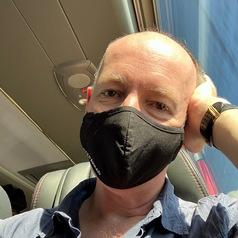
Martin Doherty
Associate Professor in Psychology, University of East Anglia
Dr Martin Doherty joined UEA as an Associate Professor in Psychology in 2013. He studied physics for a year at Bristol before deciding Psychology was the way forward. After an MSc in Cognitive Science at Warwick, he took his PhD in Developmental Psychology at the University of Sussex, supervised by Professor Josef Perner. After postdoctoral work in Japan and Stirling, he worked as a lecturer in Stirling. His research interests include theory of mind, visual illusions, and children’s understanding of eye gaze.
Less ![]()
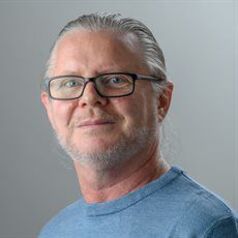
Martin Hewison
Professor of Molecular Endocrinology, University of Birmingham
Professor Hewison’s work focuses on different facets of vitamin D physiology, including classical skeletal effects and non-classical extra-skeletal effects. He has a particular interest in the interaction between vitamin D and the immune system, where antigen-presenting cells such as dendritic cells and macrophages synthesize active vitamin D (calcitriol) and also express the nuclear receptor for calcitriol (VDR). Vitamin D can therefore act as an endogenous regulator of both innate and adaptive immunity by enhancing antibacterial activity, and modulating antigen presentation and T lymphocyte function. Crucially these responses are highly dependent on the bioavailability of vitamin D, and Professor Hewison has hypothesized that immune function is influenced by vitamin D status in humans. His group is using a variety of models to test this hypothesis including basic molecular and cell analyses, and vitamin D supplementation trials in human cohorts. A key objective of his work is to increase awareness of vitamin D-deficiency in the UK population.
Less ![]()
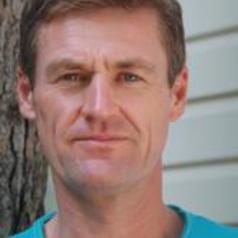
Martin Hurcombe
I am principally interested in the relationship between representations of conflict and politics in early twentieth-century France. I am the author of Novelists in Conflict: Ideology and the Absurd in the French Combat Novel of the Great War and France and the Spanish Civil War: Cultural Representations of the War next Door, 1936-1945. I am also interested in the relationship between political commitment and utopianism and the memory of the First World War in twentieth-century French culture. I am a member of the executive committee of the Group for War and Culture Studies (GWACS), based at the Universities of Bristol, Swansea and Westminster, and am one of the editors of the Journal of War and Culture Studies. In addition to this, I also have an interest in French crime fiction, particularly the novels of Sébastien Japrisot.
My teaching interests are French literature, culture, and history of the early twentieth century. I also teach general history and literature courses in Year 1 and final-year language. I am unit convenor for two final-year units: Representations of War, which studies the depiction of war in the twentieth-century French novel and cinema, and Challenging the Republic, which examines a variety of political movements that have contested the form of the French Republic since the 1920s. In the 2nd year I convene The Third Republic, which studies the social and political history of France from 1870 to 1940, and co-teach Modern French Narrative, a unit examining French fiction from the 1920s to the present. I also teach courses on war and culture at postgraduate level and am co-supervising two M.Litt/PhD theses: James McFarthing, ‘Utopian Theory and the Science Fiction of Jules Verne’ and Claire Thomas, ‘Ungaretti, giornalista’. I am also currently Deputy Head of School Teaching and Learning.
I would particularly welcome research students working on 20th-century cultural representations of conflict and/or political engagement and cultural politics in France.
My students can consult me in my office at the following time during term times:Thursday 10-11am and 3-4pm.
Biography
I studied French and Italian at the University of Exeter where I also later completed a PGCE (after a year working at the Université de Rennes II). I spent several years in secondary education pretending that I didn't miss academia until coming to Bristol as a PhD student. I completed my doctoral thesis, 'Forming the Modern Mind: A Reappraisal of the French Combat Novel of World War One', in 2000 under the supervision of Gino Raymond. That same year, I became a lecturer here in the Department of French.
I am one of the editors of the Journal of War and Culture Studies and an executive member of the Group for War and Culture Studies, currently based at the University of Westminster.
I am a keen runner and cyclist and an occasional triathlete.
Less ![]()
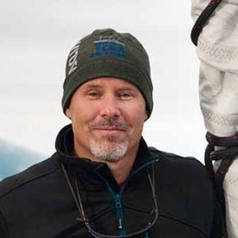
Martin Jakobsson
Professor of Marine Geology and Geophysics, Stockholm University
After completing a PhD in 2000 at the Department of Geological Sciences, Stockholm University, Martin Jakobsson joined the Center for Coastal and Ocean Mapping at the University of New Hampshire, USA, for a research scientist position. The PhD thesis was titled "Mapping the Arctic Ocean: Bathymetry and Pleistocene Paleoceanography".
Martin returned to Stockholm University from USA in April 2004 for an Associate Professor position at the Department of Geological Sciences. From November 2004, the Royal Swedish Academy of Sciences awarded him five years to devote full time for research as an Academy Fellow through support from the Knut and Alice Wallenberg Foundation. He was promoted to full Professor of Marine Geology and Geophysics at Stockholm University in September 2009 and has served as Head of the Department of Geological Sciences since 2012.
His current research interests include the Arctic Ocean glacial history, the West Antarctic Ice Sheet, submarine glacial landforms and geophysical seafloor mapping using acoustic methods. Martin has spent more than one year of ship time onboard open ocean research vessels and he has been Co-Chief Scientist on eight international ocean expeditions. The Royal Swedish Academy of Sciences Class V for Geoscience elected Martin as a member in 2012, and he is acting as the 1st Vice President of the Academy since 2016.
Less ![]()
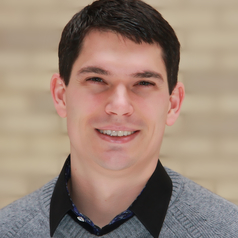
Martin Jucker
Lecturer in Atmospheric Dynamics, UNSW Sydney
Originally a PhD in Plasma Physics and Nuclear Fusion, I have switched to in atmospheric dynamics a while ago, and worked in the USA at Princeton University and New York University, as well as the University of Melbourne and now the University of New South Wales.
My expertise lies in climate dynamics, including stratospheric dynamics and the variability of the jet stream, but also cloud resolving simulations of tropical convection.
Less ![]()
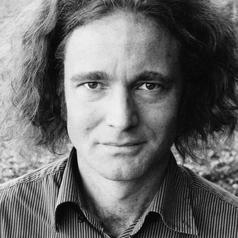
Martin Knust
Professor of Musicology, Linnaeus University
Martin Knust (Dr. phil., M.A.) is associate professor in musicology and member of the research center for Intermedial and multimodal studies at Linnæus University in Växjö, Sweden (LNUC IMS). His research interests focus on opera and music theatre after 1800 (especially the historical performance practice of speech, song and gestures), north European music after 1800 (especially reception and cultural transfer processes between the North and continental Europe), 16th-century sacred music, the music of Angkor (especially its iconography), and music in audiovisual political journalism (especially its production and aesthetics).
Less ![]()
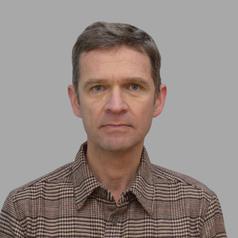
Martin Lages
Associate professor, University of Glasgow
After receiving a PhD from Heidelberg University and a DPhil from Oxford I worked as a postdoctoral fellow at the Max Planck Institute for Human Development, Berlin before obtaining a PD (habilitation) at Tuebingen University. I am a regular member of the Vision Sciences Society, Applied Vision Association, Scottish Vision Group and the Society for Mathematical Psychology. My research interests range from quantitative methods (hierarchical models, Bayesian inference), visual perception (motion, stereo, visual memory, visual awareness and illusions) to human decision making (sequential effects, cognitive bias, rationality, free will).
Less ![]()

Martin Lang
Senior Lecturer and Programme Leader in Fine Art , University of Lincoln
Martin Lang is senior lecturer in Fine Art and Programme Leader for MA Fine Art. He teaches both practice and theory on the MA and BA Fine Art programmes. Prior to working at Lincoln he taught on the BA Fine Art and BA History & Philosophy of Art programmes at the University of Kent and on the Foundation Diploma at University for the Creative Arts.
Martin trained as a painter before completing a PhD in History & Philosophy of Art, researching militant forms of art activism. He is an artist and a writer. He has exhibited internationally (Cyprus, Portugal, and the USA). In the UK, his work has been selected for exhibition by the likes of Turner Prize artist Dexter Dalwood and Tate Curator of Photography Simon Baker. He publishes research on art and politics and he writes for Trebuchet magazine.
Expressions of interest for PhDs in any of the areas listed below under "Subject Specialism" (or related subjects) are welcomed.
Less ![]()
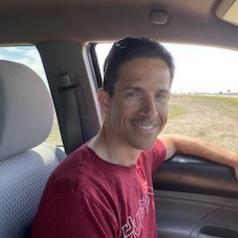
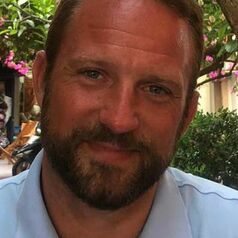
Martin Lemberg-Pedersen
Honorary Associate Professor, University of Warwick
Martin Lemberg-Pedersen is Honorary Associate Professor at the University of Warwick and joined PAIS in September 2021. He is also Head of Policy and Society for Amnesty International, Denmark. Before Warwick, he was an Associate Professor at the Centre for Advanced Migration Studies, University of Copenhagen. Since 2019 he has been affiliated to the Advancing Alternative Migration Governance (AdMiGov)-project, funded under the Horizon 2020 programme. He has also been Assistant Professor at Aalborg University, and a Post Doc and a PhD at the University of Copenhagen.
Less ![]()
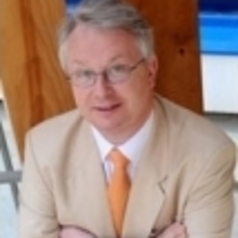
Martin McKee
Professor of European Public Health, London School of Hygiene & Tropical Medicine
As Professor of European Public Health at the London School of Hygiene and Tropical Medicine I co-direct the European Centre on Health of Societies in Transition (ECOHOST), a WHO Collaborating Centre that comprises the largest team of researchers working on health and health policy in central and eastern Europe and the former Soviet Union.
I am also research director of the European Observatory on Health Systems and Policies, a unique partnership of universities, national and regional governments, and international agencies and am President-elect of the European Public Health Association. I have published over 720 scientific papers and 40 books. I was an editor of the European Journal of Public Health for 15 years and am a member of numerous editorial boards, as well as being an editorial consultant to The Lancet.
Less ![]()
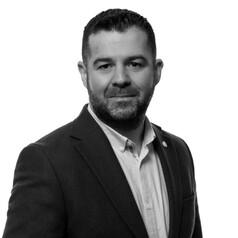
Martin McMahon
Assistant Professor in Intellectual Disability Nursing, Trinity College Dublin
Dr Martin McMahon (BNSc, MSc, H.Dip, PGCE, PhD) is an Assistant Professor in Intellectual Disability Nursing at the School of Nursing and Midwifery at Trinity College Dublin.
Martin's background is in nursing, and he is a registered nurse in the intellectual disability, children's and tutors’ division. He is also a fellow of the Higher Education Academy. Martin has worked in a variety of nursing and specialist nursing posts in Ireland and abroad. General areas include paediatric nephrology; children with life-limiting conditions; community intellectual disability nursing; psychiatry of intellectual disability (where he was an independent and supplementary prescriber), practice education and regulation.
Martin has published articles in many journals in this area and his primary research area of interest is the health inequalities and inequities that people with intellectual disability experience when accessing healthcare.
Less ![]()
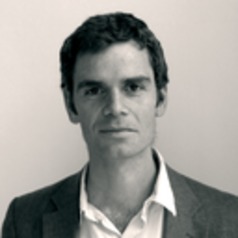
Martin Moore
Dr Martin Moore is director of the Centre for the Study of Media, Communication and Power, and a Senior Research Fellow in the Policy Institute at King’s College London. He was previously founding director of the Media Standards Trust (2006-2015) where he directed the Election Unspun project and wrote extensively on the news media and public policy. Recent research publications include:
Election Unspun: Political Parties, the press, and Twitter during the 2015 election campaign (2015); Who was hacked? An investigation into phone hacking and its victims (2015); Addressing the Democratic Deficit in Local News through Positive Plurality (2014) and IPSO: An Assessment (2013).
He is author of The Origins of Modern Spin (Palgrave Macmillan 2006) and ‘Plurality and Local Media’ in Media Power and Plurality, ed Steven Barnett and Judith Townend (Palgrave Macmillan, 2015).
Less ![]()
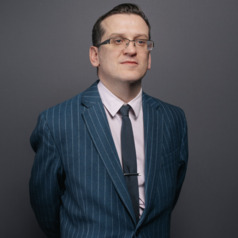
Martin Owens
Senior Lecturer in International Business, Sheffield Hallam University
Dr Owens is a Senior Lecturer in International Business at Sheffield Hallam University. His research focuses on the intersection of business firms and political violence.
He has published his research in Environment Planning A, International Business Review, Industrial Marketing Management and Services Industries Journal. He has a PhD from the University of Ulster.
Less ![]()
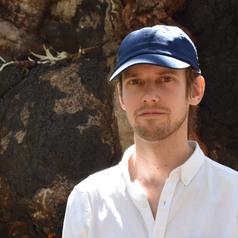
Martin Polkinghorne
Associate Professor in Archaeology, Flinders University
Martin Polkinghorne is an Associate Professor in Archaeology at Flinders University.
Martin completed his PhD at The University of Sydney focussing on the people and technology that made the temples of Angkor. Between 2011 and 2014 he led an Australian Research Council (ARC) Discovery project on pre-modern craft economies in Cambodia. This initiative discovered the first historic bronze foundry known in Southeast Asia and continues to excavate at Angkor.
Martin is Lead Chief Investigator of an international consortium on the ARC Linkage Project: 'Reuniting orphaned cargoes: Underwater Cultural Heritage of the Maritime Silk Route'. This project aims to discover the cultural value of the largest Southeast Asian ceramic collections in Indonesia and Australia with archaeological science and to preserve the underwater cultural heritage of our region for future generations.
As a Chief Investigator on the ARC funded Greater Angkor Project's 'Urbanism after Angkor (14th - 18th century CE): re-defining Collapse', Martin seeks to change perceptions of Cambodian history after the demise of Angkor, from depictions of defeat and loss towards recognition of adaptation and renewal. In a complementary research program, Martin led the ARC Discovery Early Career Researcher Award (DECRA) project 'New Light on Cambodia’s Dark Age: The capitals of Cambodia after Angkor (1350 – 1750)'. These projects have conducted the first archaeological investigations of Cambodia's Early Modern Period capitals on the banks of the Mekong and Tonle Sap arterial rivers. Research of Cambodia during a time of quickening international trade retrieves this period from a perceived Dark Age, and reveals critical linkages between the celebrated Angkorian past and the present-day.
Martin is an Honorary Research Fellow of the Asian Studies Program, The University of Sydney.
Less ![]()

Martin Schiavenato
Assistant Professor of Nursing, Gonzaga University
I am a former newborn intensive care unit nurse and passionate about educating the next generation of nurses and advanced practice nurses in the context of a healthcare system that sorely needs competent, innovative, compassionate clinicians with a fire for social justice. My work lies at the junction of technology and its application to improve healthcare. I am a medical device inventor and alumnus of the Robert Wood Johnson Nurse Faculty Scholars Program, and the Pain in Child Health program from the Canadian Institute of Health Research. Themes in my research include pain assessment, technology in care, and the environment.
Less ![]()
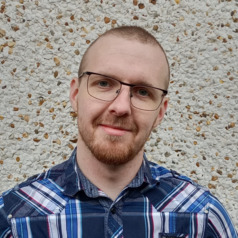
Martin Sharkey
Senior Post-Doctoral Researcher, University of Galway
My primary research area is in the investigation and ultimate removal of legacy and emerging hazardous contaminants from the environment, including: interventions and screening methods to remove hazardous additive chemicals from recycling streams to prevent contamination of clean plastic and textile materials; investigations of wastewater treatment systems, the release of treated water to the environment, and the use of by-products such as biosolid fertilisers in agricultural and industrial applications in order to assess environmental uptake of hazardous chemicals; proposing revisions to regulations relevant to the ubiquity of industrial chemicals in everyday applications and their uptake into the environment.
Thus far, I have co-authored three EPA technical reports and 16 peer-reviewed publications in high-impact international journals. These have thus far generated over 400 citations, along with h- and i10-indices of 8. I also have a broad range of teaching experience having lectured and demonstrated in undergraduate physics modules for several years, and the supervision of both undergraduate and post-graduate physics- and environmental science-based research projects. I have sat on the organising committees for multiple international conferences encompassing various environmental and health impact aspects of emerging contaminant research, and am part of several international organisations including the Institute of Physics and the International Waste Working Group, in order to stay apprised of and engaged with up-to-date knowledge in various fields of study.
I have advised on and worked on projects with multiple organisations towards the ends of removing harmful contaminants from circulation, improving waste management and recycling systems, and improving human and environmental health, including: the Environmental Protection Agency of Ireland; the Department of Agriculture, Food, and the Marine; Department of the Environment, Climate, and Communications; the UK’s Environment Agency, and the UK Department of Environmental and Rural Affairs.
Less ![]()
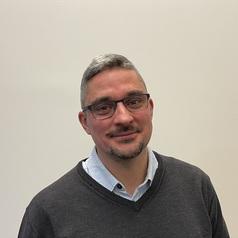
Martin Sokol
Associate Professor of Economic Geography, Trinity College Dublin
Dr. Martin Sokol is Associate Professor of Economic Geography at Trinity College Dublin, Ireland. His research focuses on central banks, monetary policy and financialisation, with special interest in the way central banks respond to crises, including the pandemic, the climate emergency and growing economic inequalities. He has a PhD in Economic Geography from Newcastle University, England, UK. He is one of the founding members of the Global Network on Financial Geography (FinGeo) and served as its first Secretary. Between 2016 and 2022, he led the European Research Council (ERC) project on new geographies of financialisation (Grant Agreement No 683197).
Less ![]()
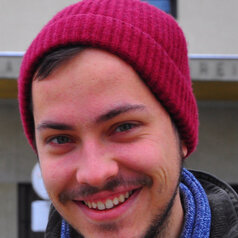
Martin Stefanec
University assistant in biology, University of Graz
I am a university assistant at the University of Graz at the Institute of Biology. I recently finished my PhD in the Field of Excellence Complexity of Life in Basic Research and Innovation. My research includes the behaviour of honeybees in relation to the ecosystem they live in, the patterns that emerge in nature at different levels and theoretical principles that lead to emergence.
Less ![]()
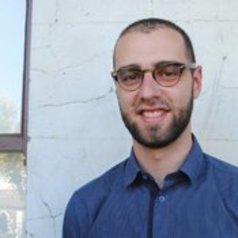
Martin Stute
Professor of Environmental Science, Columbia University
When I was about eight-years-old, I did not speak to my parents for a whole day because they threw a banana peel out of our car, which I found was unacceptable from an environmental point of view. I knew early on that I wanted to dedicate my career to environmental issues and studied Physics, because there was no such thing as Environmental Science back then. My PhD thesis research topic at the University of Heidelberg focussed on novel tracer techniques to study the dynamics of ground water flow, and the use of ground water as an archive of paleoclimate. I have been interested in water issues ever since and can still hardly resist to take a plunge into a thermal spring I encounter or take a sip from a well that might tap an interesting aquifer. I believe that water will play an increasingly important role in our attempts to achieve a sustainable global development. I am also trying hard to be a decent teacher and undergraduate and graduate student adviser, because I think that is where faculty members have the most influence on the future of our planet.
Some of my projects include:
Health Effects and Geochemistry of Arsenic and Lead
San Andreas Fault Observatory at Depth (SAFOD/EarthScope)
Carbon Sequestration
Natural Gas Production by Hydraulic Fracturing
Less ![]()
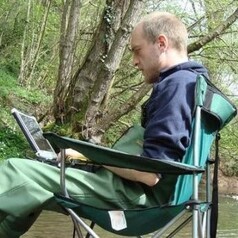
Martin Wilkes
Senior Lecturer of Life Sciences, University of Essex
As an ecologist with an industry background in data science, I am interested in data-driven explanations and predictions of biodiversity change.
Utilising large (river basin to global) scale datasets, ecological theory, statistical programming and high performance computing, my mission is to support the environmental science and management communities in finding solutions to the challenges of maintaining biodiversity, food production and water security in a changing world.
My research interests include ecology, biodiversity science, fisheries, eDNA metabarcoding, biogeography, metacommunity theory, artificial Intelligence, machine Learning, species distribution modelling, research software development.
Less ![]()
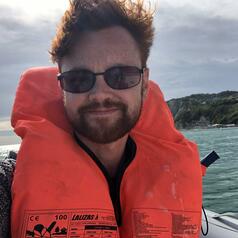
Martin D. Suttle
Lecturer in Planetary Science, The Open University
Dr Martin D. Suttle is a Lecturer in Planetary Science at the Open University, within the School of Physical Sciences. He holds a PhD in Planetary Science from Imperial College London and previously worked as a research associate at the University of Pisa and the Natural History Museum (London). Martin’s research specialises in the microanalysis of extraterrestrial materials (meteorites and micrometeorites). He studies water-rock interactions on asteroids and comets with the aim of understanding the role of water in the planet building process. Martin’s research also focuses on the flux of cosmic dust to the Earth both now and in the ancient geological past, investigating interactions between micrometeorites and Earth’s biosphere and atmosphere.
Less ![]()
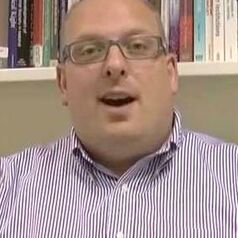
Martin Ejnar Hansen
Reader in Political Science, Brunel University London
Martin Ejnar Hansen holds a PhD in political science from the University of Aarhus and is currently Reader in Political Science at Brunel University London. He specialises in comparative politics and public policy.
Less ![]()

Martin H. Trauth
Professor, University of Potsdam
Martin H. Trauth is a professor of paleoclimate dynamics at the University of Potsdam. After completing a degree in geophysics and geology, he started his career as a palaeoceanographer, working on questions of statistical uncertainties of paleoclimate time series. Then he became a paleolimnologist, working in the Argentine Andes, involved in the consequences of climate change in areas with extreme relief, also here with a strongly quantitative reconstructive and modelling approach. Recent work has focused on the statistical classification of climate change in order to better understand the relationship between climate and human evolution.
Martin H. Trauth published more than one hundred peer-reviewed papers in high impact journals such as Science, Nature Geosciences, Nature Communications and the Proceedings of the National Academy of Sciences of the United States of America. He also authored six bestselling textbooks on collection, processing, analysis and presentation of geoscientific data with SpringerNature, including the popular MATLAB Recipes for Earth Sciences, which will be published in its 6th edition in 2024. Martin H. Trauth has published a large number of popular science works and has been involved in television documentaries on various topics in an active or advisory capacity.
Since ~30 years Martin H. Trauth has taught courses mostly in data analysis in earth sciences and science communication. He also directed five international summer schools funded by the Volkswagen Foundation with 25-70 participants and 15-20 lecturers in Ethiopia, Kenya, Tanzania, Germany–and during the Covid19 pandemic–online. He has supervised numerous bachelor's, master's and doctoral theses by young scientists who now hold positions of responsibility in geosciences in the private sector and in science. He is also very involved in communicating scientific knowledge to the public, above all in the context of the Potsdam Children's University with lectures for up to 1450 children aged 8-10, Open Day and Science Day, lectures for schools and the Society for the Gifted Child.
Less ![]()
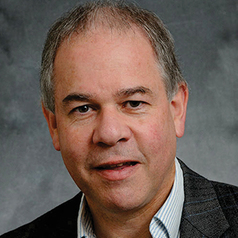
Martin J. Head
Professor of Earth Sciences, Brock University
Martin studies modern and fossil (especially late Cenozoic) marine dinoflagellate cysts for their intrinsic value in understanding the development of modern plankton, and for their utility in solving stratigraphic and palaeoecological problems. He maintains an association with the Quaternary Palaeoenvironments Group at the University of Cambridge.
Specific research interests and activities include:
Palynology and the deep-sea record, particularly ODP Leg 105 (Baffin Bay and the Labrador Sea) and ODP Leg 144 (western Pacific) where he served as shipboard palynologist, and the North Atlantic DSDP Sites 603 and 610.
Eemian (last interglacial) dinoflagellates of the Baltic Sea, as part of the EC-Funded BALTEEM project.
Late Cenozoic dinoflagellates of the Black Sea, Mediterranean and Paratethys
High-latitude Cenozoic palynology (e.g. East Canadian Arctic, Spitsbergen, Alaska, Sakhalin Island: spores, pollen, dinoflagellates)
Plio-Pleistocene palynology (spores, pollen, dinoflagellates) of the southern North Sea basin
Dinoflagellate cyst record of the Early–Middle Pleistocene transition in the Mediterranean
Neogene dinoflagellates worldwide
Morphology, taxonomy and nomenclature of living and late Cenozoic dinoflagellates
Less ![]()
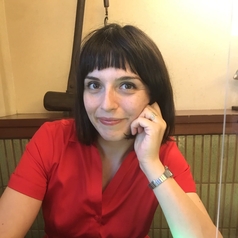
Martina Baradel
Marie Curie postdoctoral researcher, University of Oxford
I am a postdoctoral researcher at the University of Oxford, conducting research on Japanese organised crime (yakuza) and emerging criminal groups in Japan.
Less ![]()
- Market Data




















